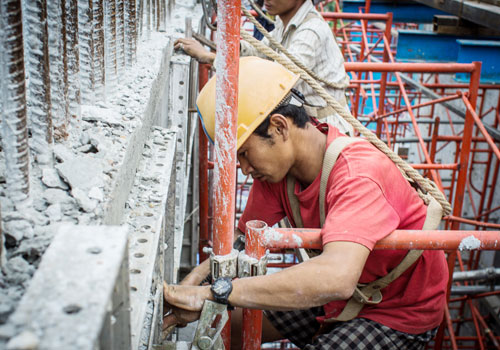Suvarnabhumi second passenger terminal plan must be grounded for checks
Editorial by The Nation
12 October 2018
Council of Engineers has raised serious doubts over location for planned second terminal – the PM must heed them
Thailand’s Council of Engineers (CoE) on Wednesday submitted a letter to Prime Minister Prayut Chan-o-cha requesting a review of the Airports of Thailand (AOT)’s Bt42-billion project to build a second passenger terminal at Bangkok’s Suvarnabhumi Airport. The CoE claims the location for the expansion is inappropriate and could seriously impact the country’s main international gateway.
Krai Tangsa-nga, CoE vice president, said the plan for a second terminal to be situated east of the existing passenger building runs counter to Suvarnabhumi Airport’s 1990 master plan, which stipulates that the terminal be built to the south, near Bang Na-Trat Highway.
The prime minister must now urgently review the project to ensure that a potentially disastrous mistake for Thailand’s transport infrastructure is avoided. AOT is in the process of inviting bids for the design and construction of the second terminal, which it says will allow the airport to handle another 30 million passengers per year, up from the current 45 million.
As a professional body, the CoE is required by its charter to provide engineering and related recommendations to the government. It’s duty in this case is clear: it must urge the prime minister to ensure that AOT follows the master plan by expanding the airport for maximum efficiency in serving both domestic and international passengers.
The CoE noted that any changes to the master plan require a detailed feasibility study and public hearing to assess the impacts which may arise. In addition, the AOT’s blueprint for the second passenger terminal project is not covered by the master plan, so the project may lead to serious airside, landside and other structural problems, including with the availability of public utilities and other support facilities.
The airport relies on more than 20 sub-systems to ensure the efficiency and effectiveness of its operations and passenger services. These could be adversely affected by a change in the master plan that has not been subject to a detailed feasibility study to explore unforeseen consequences.
The danger is that the quality of services provided to Thai and international passengers will be undermined, affecting the country’s status and reputation as a regional aviation hub. This would damage the tourism industry, a vital economic driver thanks to nearly 40 million foreign tourist arrivals per year which generate more than 10 per cent of the country’s GDP.
Other experts have already voiced opposition to the airport expansion plan, reasoning that AOT should first expand the eastern and western wings of the existing passenger terminal to boost Suvarnabhumi’s passenger capacity.
The agency decided, however, to build the new passenger terminal east of the existing building, arguing that the master plan could be altered and that the International Civil Aviation Organisation had endorsed the change.
Given the serious doubts raised by experts over a project that could have huge impacts on the Thai economy and its tourist industry, the prime minister is duty-bound to order a review.
Source: http://www.nationmultimedia.com/detail/opinion/30356296
